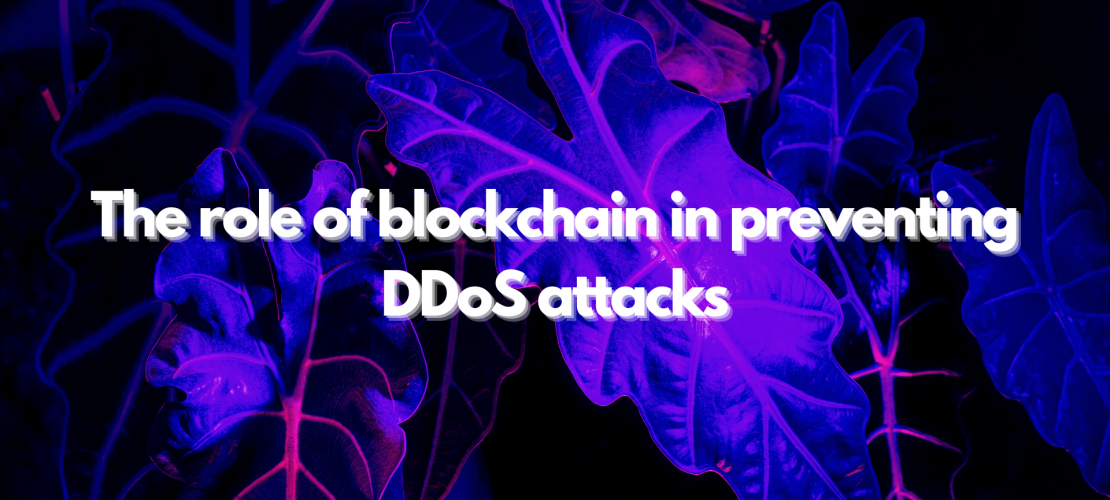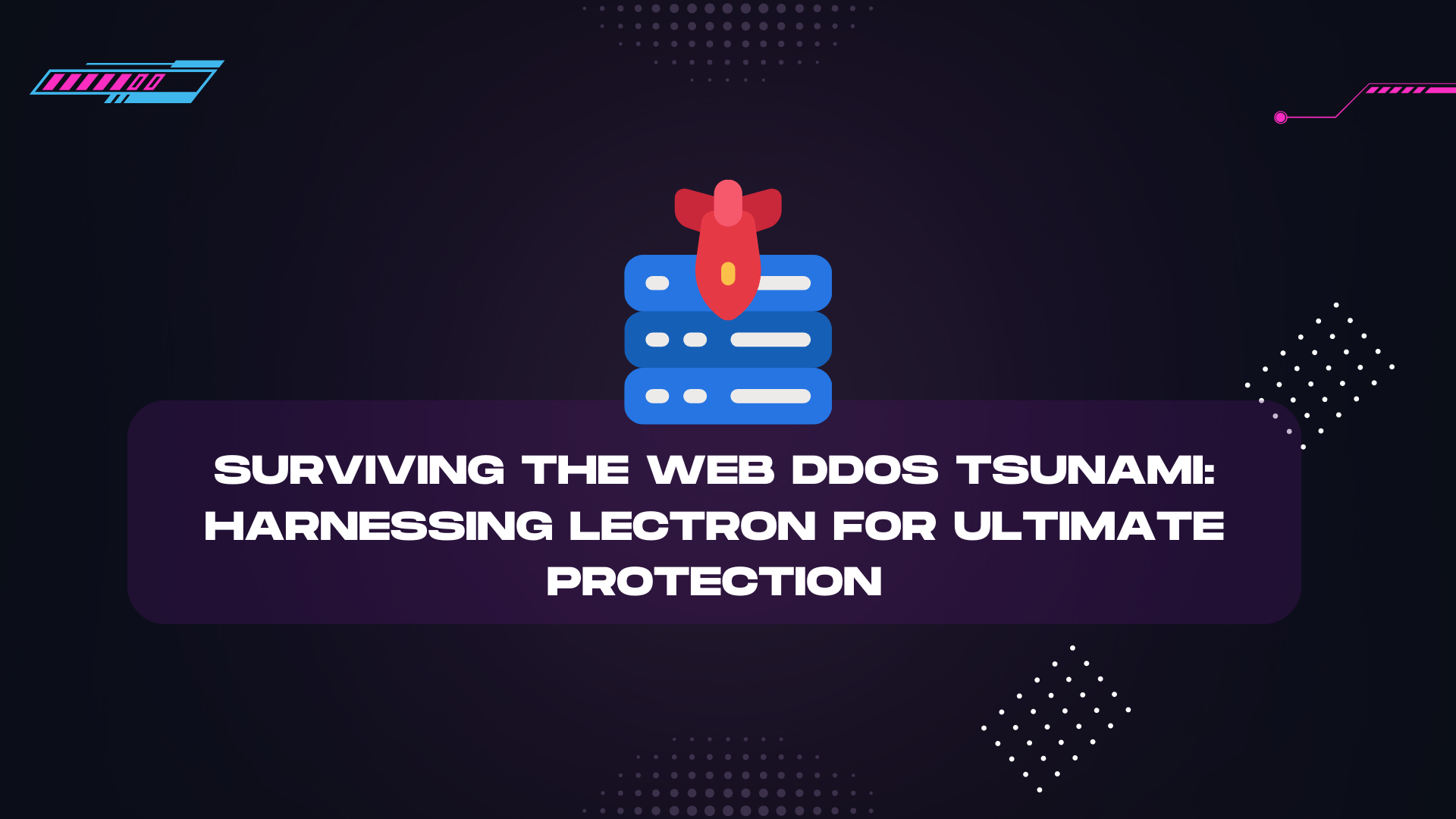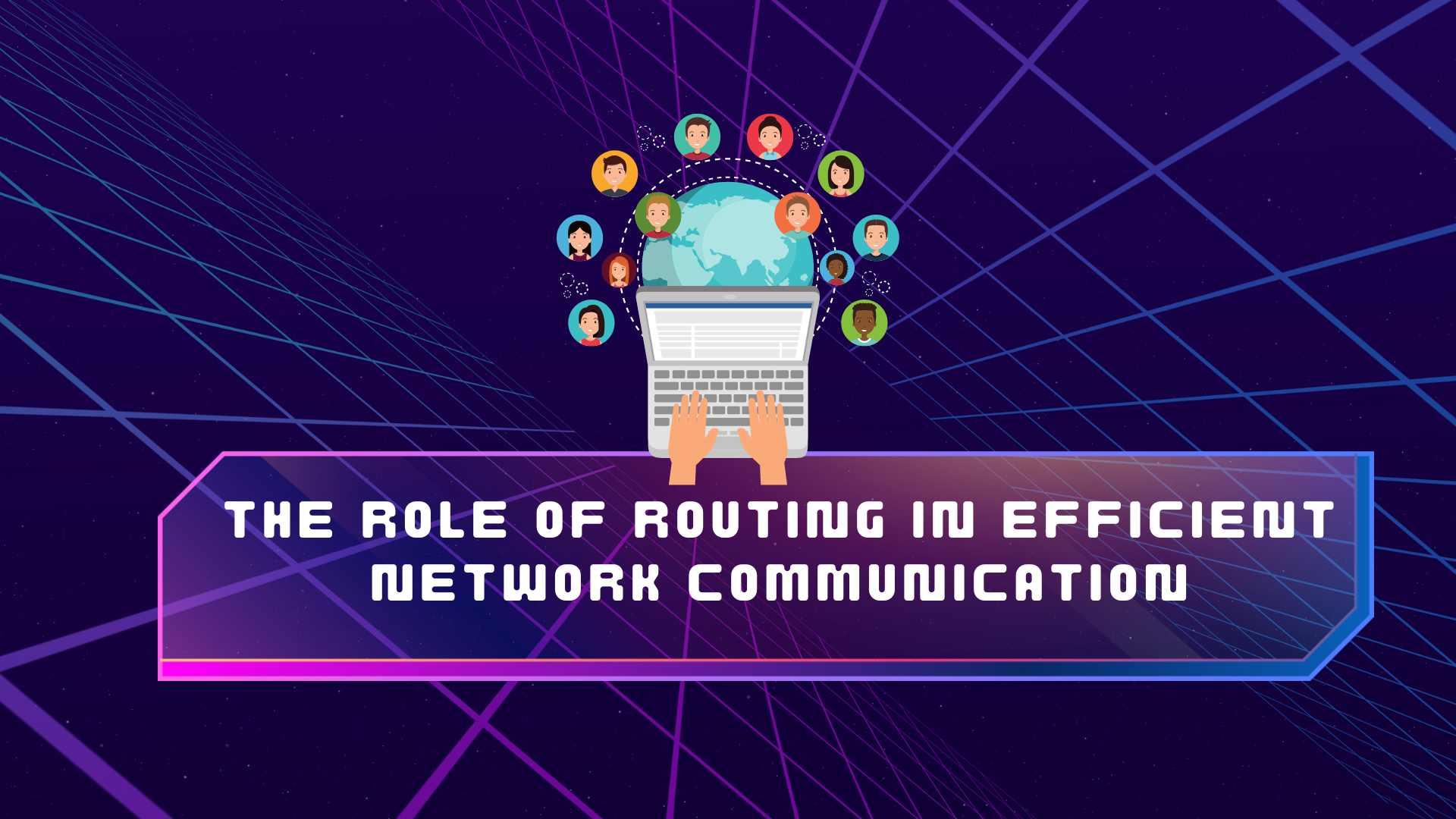DDoS attacks are a growing threat to online businesses, organizations, and individuals. DDoS attacks can cause significant damage by overwhelming servers with malicious traffic, resulting in service disruption, downtime, and lost revenue. Blockchain technology offers a new approach to preventing DDoS attacks by providing a secure, decentralized network that can mitigate the risks of these attacks. In this blog, we will explore the role of blockchain in preventing DDoS attacks and the benefits it offers to organizations.
- Decentralized network: Blockchain technology provides a decentralized network, which means that there is no single point of failure. Unlike traditional networks that rely on a centralized server or a single cloud provider, blockchain networks are distributed across multiple nodes. This decentralized architecture makes it difficult for attackers to launch successful DDoS attacks since there is no single target to attack.
- Immutable ledger: The blockchain’s immutable ledger allows for the recording and verification of all transactions that occur within the network. This transparency ensures that all transactions are valid and can be traced back to their source, making it easier to identify malicious actors attempting to launch DDoS attacks.
- Smart contracts: Smart contracts are self-executing contracts that automatically enforce the terms of an agreement between two or more parties. Blockchain networks utilize smart contracts to create rules and protocols that govern the behavior of nodes within the network. This ensures that all nodes within the network follow the same rules, preventing any node from maliciously attacking the network.
- Token-based network: Blockchain networks use tokens as a means of payment for transactions that occur within the network. This payment system makes it more expensive for attackers to launch DDoS attacks since they would need to purchase a significant number of tokens to flood the network with malicious traffic. This makes it economically infeasible for attackers to launch DDoS attacks on blockchain networks.
- Proof of work: The proof of work consensus mechanism used in blockchain networks requires nodes to solve complex mathematical problems to validate transactions and add them to the blockchain. This requirement makes it more difficult for attackers to flood the network with malicious traffic since they would need to solve these complex problems to launch a successful DDoS attack.
- DDoS protection services: Many blockchain networks offer DDoS protection services that utilize their network’s features to prevent and mitigate the risks of DDoS attacks. These services include traffic filtering, rate limiting, and token-based authentication, which can prevent malicious traffic from flooding the network and ensure that all transactions are valid.

While blockchain technology can offer significant benefits in preventing DDoS attacks, it is not a complete solution. Organizations should also implement other security measures to protect against other types of attacks, such as malware, phishing, and social engineering. However, incorporating blockchain technology into their security infrastructure can provide an additional layer of protection against DDoS attacks.
Furthermore, as blockchain technology becomes more widely adopted, it can create new opportunities for cybercriminals to launch attacks. For example, attackers may attempt to exploit vulnerabilities in the blockchain’s consensus mechanism or smart contracts to launch DDoS attacks. As such, organizations must remain vigilant and regularly update their security measures to stay ahead of evolving threats.
In addition to preventing DDoS attacks, blockchain technology can also help improve the overall security of networks and systems. By providing a decentralized network, blockchain technology reduces the risk of data breaches and ensures that sensitive data remains secure. Additionally, the blockchain’s immutable ledger provides a secure and transparent record of all transactions, making it easier to detect and prevent fraudulent activity.
In conclusion, blockchain technology offers a promising approach to preventing DDoS attacks and improving overall network security. By providing a decentralized network, immutable ledger, smart contracts, token-based payment system, and proof of work consensus mechanism, blockchain technology can help mitigate the risks of DDoS attacks. However, it is not a complete solution, and organizations must implement other security measures to protect against other types of attacks. As blockchain technology continues to evolve, we can expect to see even more innovative solutions to prevent DDoS attacks and improve overall network security.




